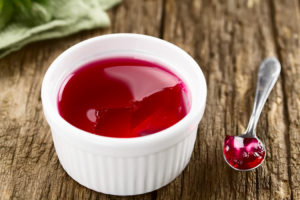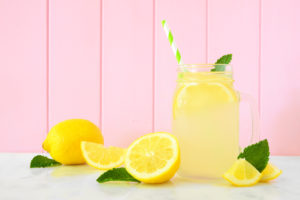Sources of Food Ingredients: Pectin
Pectin
- What is pectin?
Pectin is a polysaccharide (a complex carbohydrate) and soluble fiber commonly used to thicken foods and beverages. Pectin is abundant in most fruits and vegetables. It’s important for growth and provides structural support to help produce maintain its shape. The main sources of pectin are the rinds of citrus fruit, apple pomace and sugar beet pulp.
- how is pectin made?
Commercial pectin is produced by extraction. It is then dried to a powder that can be dissolved in liquid.
- Why is pectin in my food?
Pectin is added to food because it improves the texture and/or the stability of the prepared product. For example, yogurt without a stabilizer like pectin will separate, and the protein will settle at the bottom of the container, with only a thin water solution at the top. When a jam is prepared without pectin, the fruit will float to the top of the jar; however, if pectin is added, the fruit will be evenly distributed from bottom to top.
Pectin is also used to thicken and add texture to foods like jams and jellies. When cooked at a high temperature and combined with acid and sugar, it forms a gel. This reaction ensures that the jam or jelly spreads easily on your toast.
- What foods and beverages contain pectin?
Jams, jellies, spreads, soft drinks, gummy snacks, confectionery and baking products, fruit juices, drinkable and spoonable yogurts, dressings and protein drinks are among the main foods and beverages that contain pectin.
- Is pectin permitted for use in the U.S. and in other countries?
Yes, pectin is Generally Recognized As Safe (GRAS) by the US Food and Drug Administration (FDA) for adults, in follow-on formula for infants at the age of six months and older, and in foods for infants and young children.
Pectin is also accepted globally, for example, by the World Health Organization and countries including Canada, Mexico, Brazil, the European Union, China, Japan, and Korea.
- Can pectin be used in foods marketed as organic, vegetarian, halal or kosher?
Pectin grades are available to support organic label claims per local regulations and standards, as well as for us in vegetarian, vegan, non-GMO, kosher and halal product formulations. Please note that designations may not apply in all countries.
- What benefits does pectin provide?
Pectin is recognized and approved as a dietary fiber in the U.S. and the European Union. Dietary fiber contributes beneficial effects such as the feeling of satiety and generally improved digestion.
- How does the production and use of pectin impact the environment?
Pectin usually starts its lifecycle as a recycled product. Most pectin is made from apple pomace and citrus peel left over after fruit juice production, so it’s a byproduct of the juicing industry. This material would otherwise go to waste.
After the pectin in extracted, the wastewater can be repurposed into liquid fertilizer. In addition, the remaining components can be used as biofuel.
- How long has pectin been used in foods?
Pectin was first isolated in 1825, but it was used long before that as a gelling agent in jams and jellies. (It’s very likely that your grandmother uses pectin to make her jam!)


